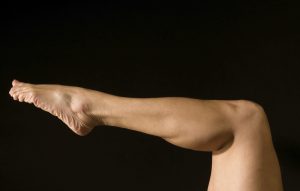 Clonus is a condition that results in involuntary muscle spasms and most commonly affects the muscles at the end of a limb. Clonus can be a condition in itself, or it can be a symptom of another condition.
Clonus is a condition that results in involuntary muscle spasms and most commonly affects the muscles at the end of a limb. Clonus can be a condition in itself, or it can be a symptom of another condition.
Clonus mainly affects the knees, ankles, upper and lower arm muscles, and the jaw. These involuntary muscle contractions can make everyday activities quite challenging and even lead to debilitating fatigue.
Advertisement
Clonus is often confused with myoclonus, a condition in which the muscle uncontrollably jerks. A person cannot control clonus and living with it can be quite challenging. Here we will outline the causes, symptoms, tests, and treatments of clonus to help you have a better understanding of the condition.
Clonus causes and symptoms
Clonus is caused by a disconnect of information flowing between the central nervous system and the affected muscles. Clonus most commonly affects muscles at the ends of limbs, including ankles, wrists, etc.
Clonus can also be caused by a medical condition such as multiple sclerosis, Huntington disease, spinal cord and brain injuries, meningitis, stroke, upper motor neuron lesion, spastic paraparesis, subacute sclerosing panencephalitis, Brown-Sequard syndrome, and cerebral palsy. Uncovering the underlying cause of clonus is important to help determine which modes of treatment will yield the greatest success.
The main symptom of clonus is involuntary muscle spasms. These muscle spasms can be sudden, shock-like, intensive, and frequent. Clonus may affect only one muscle or several muscles, and it can spread to different muscle groups. A severe case of clonus can even impair speech or movement.
What is a clonus test?
Due to the fact that several neurological conditions could be the cause of clonus, there is a clonus test to determine whether it is clonus or another condition that is causing the muscle spasms. Your doctor will either perform an ankle clonus test or a wrist clonus test.
The doctor performs a rapid dorsiflexion of the foot where the foot is held at slight tension with the toes pointed towards you. When the foot is released that will cause a clonus reaction. If there is no reaction when the foot is returned back to normal, the clonus is not present. If the foot jerks over five times, that reveals clonus. The same procedure is conducted on the wrist as well, if your doctor chooses to perform a wrist clonus test.

Treatment options for clonus
Living with clonus can be challenging as it can affect everyday movements. Depending on severity, a person may need assistive devices like a cane or walker just to get around. Some other treatment options for clonus include:
Physical therapy: This can be done at home or in a clinic to help stretch and exercise the body. Physical therapy can help reduce the severity of clonus symptoms.
Supports: Because stability may be compromised in clonus, assistive devices can help improve stability and prevent injury.
Medications: Immunosuppressants, anticonvulsants, and tranquilizers are common medications for treating clonus.
Botox: Injecting a patient with botox helps block the release of chemicals that work to cause the muscles to convulse.
Advertisement
Surgery: If clonus occurs due to a lesion or tumor, then the surgery may be performed to repair the lesion or remove the tumor.
Treatment for the underlying condition: Because clonus can be caused by many other neurological disorders, treatment will then be needed for the particular condition that is causing the clonus to get relief. This means taking medications for multiple sclerosis or treating meningitis.
Working with your doctor can help you determine which mode of treatment is best to treat your clonus.
